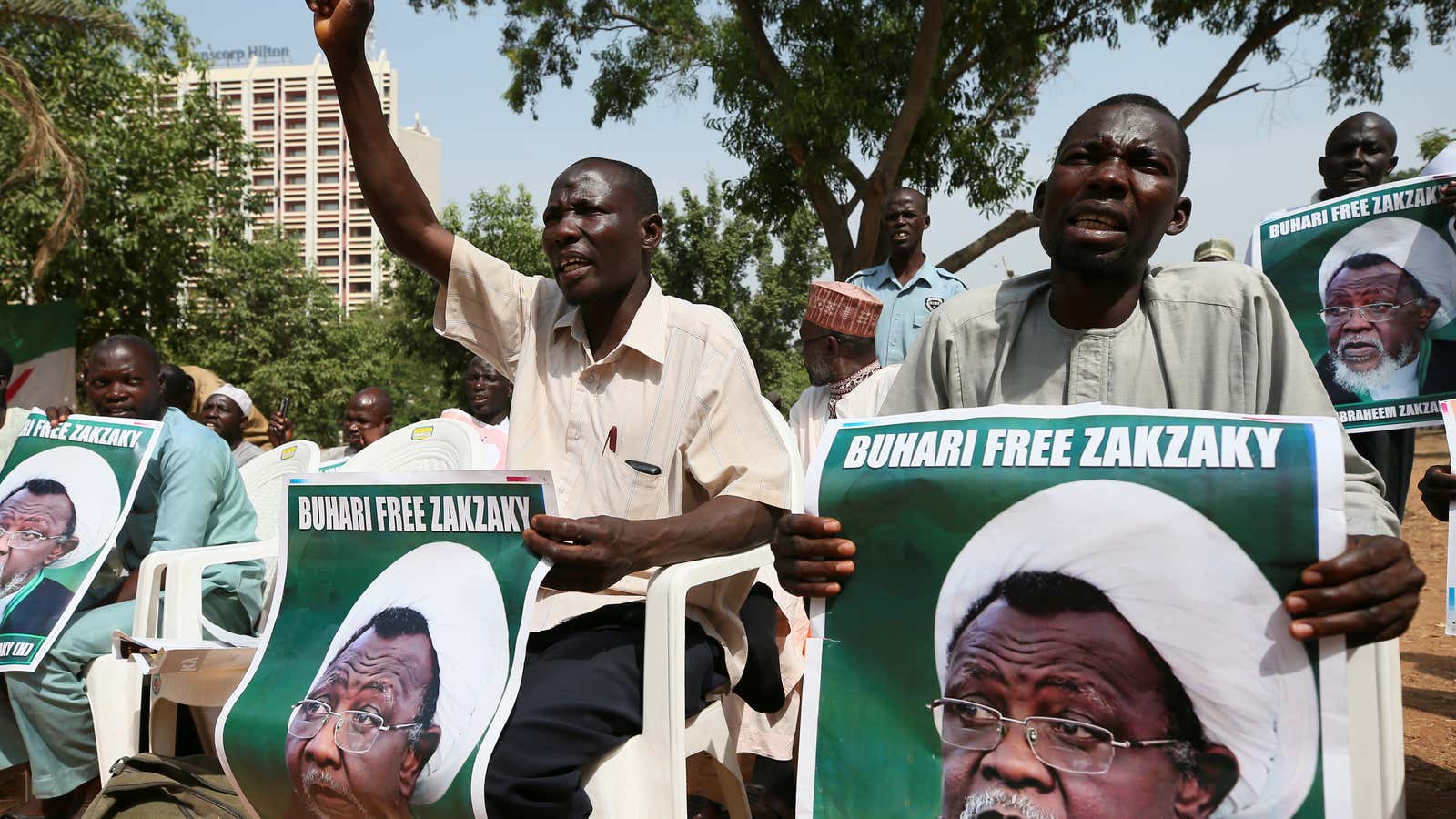This year, Nigeria, a country which prides itself on milestones like being Africa’s most populous country and being home to its largest economy, is marking an unsavory one: a decade of devastating insurgency in its northeast region.
Since 2009, Boko Haram has grown from being a fringe religious sect to being a brutal terrorist group. In its wake, over 25,000 people have been killed with thousands others abducted. At least 2 million people have also been displaced from their homes across the northeast. The devastation has set back what was already one of Nigeria’s least developed region. The insurgency has also cost the government billions of dollars in military spending and has stretched the country’s security forces to their limits.
It’s not the sort of reality any country is keen to relive.
But, as it turns out, Nigeria is repeating many of the mistakes which led to the rise of Boko Haram as a terrorist group.
This year, members of the Islamic Movement of Nigeria (IMN), a Shi’ite Muslim group, have repeatedly led protests in Abuja, Nigeria’s capital, for the release of their leader, Ibrahim El Zakzaky who remains imprisoned since 2015 despite court orders for his release. His detention came after an “altercation” between the group and the Nigerian army which resulted in over 300 members killed and buried in a mass grave.
Ever since, protests by IMN members have been typically met with brute force: the group says over 20 of its members were killed last week. Last year, New York Times’ analysis of video footage of protests revealed the army killed unarmed protesters in another incident.
The parallels between the handling of IMN and early-day Boko Haram are easy to see: in both cases the government detained the leader of an ideologically radical religious group, triggering anger among its members with no way to predict—or contain—the fallout.
In the case of Boko Haram, erstwhile leader Mohammed Yusuf died in police custody, sparking violence which eventually saw the group morph into a murderous sect as, in Yusuf’s stead, a far more radical leader emerged in Abubakar Shekau, now Nigeria’s most wanted man who’s proven hard to capture. Today, even though El Zakzaky’s legal team say he requires urgent medical care, nothing suggests he will be released soon.
With IMN vowing more protests in El Zakzaky’s absence and security forces unlikely to change tactics, there are fears this may degenerate into another cycle of violence led by a radical group, like Boko Haram did. There are already signs of escalating tensions: with last week’s protests also resulting in the death of a police officer, Nigeria’s government ominously appears set to declare IMN “a terrorist group”.
Sign up to the Quartz Africa Weekly Brief here for news and analysis on African business, tech and innovation in your inbox
